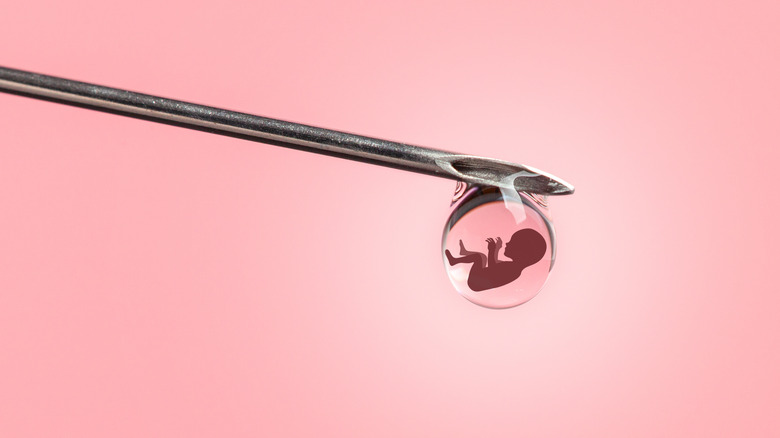How Three-Parent IVF Is Being Used To Prevent Genetic Disorders
In vitro fertilization or IVF is a common yet complex solution for people who want to conceive but are unable to do so naturally. On March 30, Australia passed a bill that allows genes from three people to conceive, per WebMD. The procedure, which is intended to help prevent disorders in babies caused by defective mitochondria, is also legal in the U.K.
As the National Human Genome Research Institute explains, mitochondria produce energy in different cells in the body with the goal of helping them grow and function normally. How much mitochondria muscles need is different from how much the liver or brain needs. If there's a deficit in this energy production, symptoms of disease and dysfunction can occur.
Mitochondria contain some DNA and are passed down from the mother to the child, so if a mother has damaged mitochondrial DNA, her children are at risk of serious health issues, according to Harvard University.
Dr. Arthur Caplan, head of the division of medical ethics at the New York University Grossman School of Medicine in New York City, told WebMD that "the outcomes from this problem are really severe, and it's highly likely that the baby will be very sick or die."
How it works
WebMD says that three-parent IVF will help prevent passing down damaged genetic material. The nucleus (which contains most of our DNA) is taken from the mother's egg and placed into a donor egg consisting of healthy mitochondria, then the father's sperm fertilizes the donor egg. As a result, the embryo will have genes from mother, the donor mother, and the father.
Caplan said that the purpose of three-parent IVF should be focused on repairing disease. "I don't think all genetic engineering of embryos is wrong, but we have to draw the line between enhancement versus treating disease," he said.
Genetic screenings are an alternative for detecting healthy embryos. This can be effective for women with relatively few mitochondrial mutations. Another option is to use a donor egg and the father's sperm, but the baby wouldn't have any of the mother's DNA, which may be problematic.
With that being said, Caplan cautions that while three-parent IVF is an option, science has yet to discover the full scope in terms of safety. "I do think it's worth offering as one option, but you also have to get people to think about how important it is to have a biological child together and make sure that they understand that even if we try this technique, we don't know the long-term outcomes for children yet," he warns.


